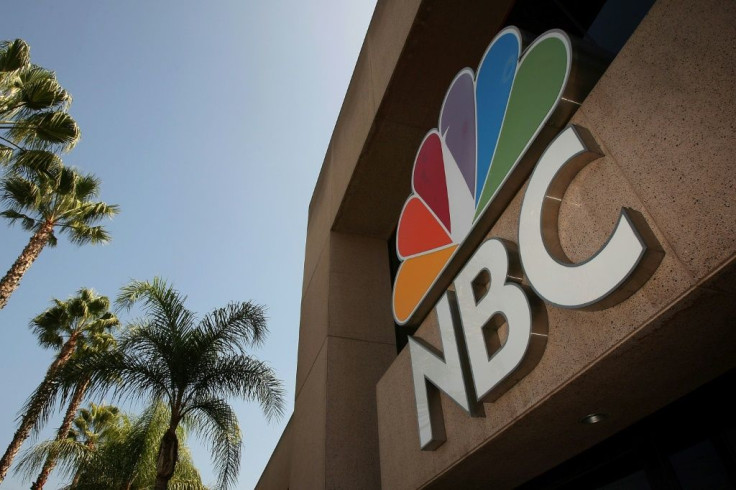The Peacock Is Landing: NBCUniversal To Launch Its Own TV Streaming Service

It's not a closely held secret that Netflix (NASDAQ:NFLX) has set off a TV streaming and entertainment content war. On top of the offerings that are already out there, this November we will see the launch of Disney's (NYSE:DIS) Disney+ as well as Apple's (NASDAQ:AAPL) TV+, all featuring cheap monthly price tags to lure in subscribers.
It may be arriving a bit late to the party, but Comcast's (NASDAQ:CMCSA) NBCUniversal just officially announced its take on the burgeoning internet-delivered television market: Peacock. Don't write it off as just another imitation service, though. Peacock has some actual potential to take off.
The details
Peacock is due to launch in April 2020. Anyone who's ever tuned in to an NBC broadcast will recognize the name as a nod to the company's peacock logo. As management had been hinting, there will be ad-supported and ad-free subscription versions for consumers to choose from. No word yet on pricing, although it's fair to guess that it will want to be competitive if it expects to do well against Disney+ at just $6.99 a month and Apple TV+ at $4.99 a month.
Peacock is already lining up new TV and movie content from big Hollywood names, live event coverage like the 2020 Summer Olympics, and popular classic TV sitcom titles like The Office, Parks and Recreation, 30 Rock, Monk, and Frasier, just to name a few. Other drama and sci-fi series like the Battlestar Galactica (both the classic series and a new reboot), Friday Night Lights, and House will also be available. Some 3,000 hours of content from NBC's Telemundo Spanish network will also stream on Peacock. No word yet on how widely distributed the service will be beyond the U.S., although it could reach far given that Comcast also owns Sky broadcasting in Europe and the U.K.
The analysis
Rather than just a "Hey, I want in too" service, Peacock could actually be a compelling option for consumers. While market-leading Netflix subscribers in the U.S. have -- at least for the moment -- stalled out at about 60 million, ad-supported internet TV could push the number of people cutting cable and making the switch to streaming far higher in the next few years. Far less expensive than cable, the only other requirement besides a single-digit monthly bill is a few minutes of endurance through commercials if you opt for that version of the service. Who can argue with that?
NBCUniversal isn't just stocking Peacock with new TV series, movies, and live events; it has a deep reservoir of old content, too. According to polls conducted by Nielsen, consumer familiarity with content matters -- quite a bit, actually. According to the pollster, the availability of shows viewers used to watch on broadcast TV ranks as the top reason for choosing a streaming service.
It's why Netflix has been in bidding wars with the old guard in entertainment for content distribution rights. For example, Netflix lost The Office to Comcast but likely paid hundreds of millions for the global rights to Seinfeld. It's likely that consumers will ultimately subscribe to multiple services to get everything they want (Disney is betting on that by offering a bundle package with Disney+, Hulu, and ESPN+). But at some point, consumers will start making tough decisions. The ease with which a streaming service can be turned on and off will produce subscriber turnover and will also put a cap on pricing power.
As a new entrant to the TV streaming wars, Comcast is set to be a disruptor that benefits from the trend. Over the long term, though, the amount of competition out there will set a limit on how many subscribers Peacock is able to muster and how profitable it inevitably will be.
The investor takeaway
It's important to remember that while NBCUniversal is getting lots of attention, Comcast's bread and butter is its cable internet segment, headlined by Xfinity. Cable services generated 52% of revenues through the first half of 2019, but the segment generated two-thirds of adjusted EBITDA (earnings before interest, tax, depreciation, and amortization).
While broadcasting and other sources of TV revenue have been performing solidly, Peacock could be a nice bolt-on addition for the NBCUniversal segment, increasing viewership of its properties and thus growing ad revenue -- not to mention creating a small but stable stream of income from Peacock subscriptions. However, at the end of the day, NBCUniversal ultimately takes a back seat to cable. And that's what makes Peacock a small potential value enhancer for Comcast shareholders but a potentially deadly new entrant for Netflix, which relies solely on the fate of internet TV viewership. The same goes for Disney+ and Apple TV+. The verdict's out, and it will likely take at least a few quarters of operating history to determine how Peacock and its peers will disrupt the TV-viewing landscape.
Full disclosure if you haven't already guessed: My chips are on Comcast, Disney, and Apple at the moment, and I do not own Netflix.
One thing's for sure, though: The consumer is winning. Home entertainment options are getting more plentiful and cheaper by the dozen.
Nicholas Rossolillo and his clients own shares of Apple, Comcast, and Walt Disney. The Motley Fool owns shares of and recommends Apple, Netflix, and Walt Disney. The Motley Fool has the following options: long January 2021 $60 calls on Walt Disney, short October 2019 $125 calls on Walt Disney, short January 2020 $155 calls on Apple, long January 2020 $150 calls on Apple, short January 2020 $155 calls on Apple, and long January 2020 $150 calls on Apple. The Motley Fool recommends Comcast. The Motley Fool has a disclosure policy.
This article originally appeared in The Motley Fool.




















